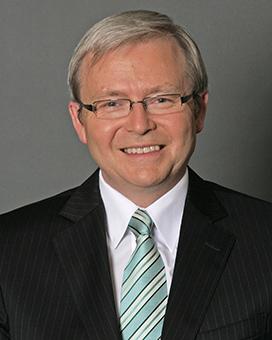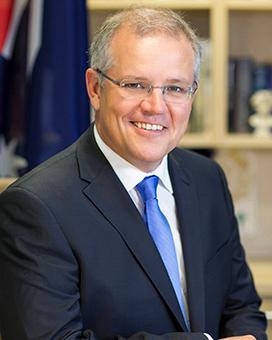On this page
2000 to 2009
9 Oct 2004: First elected to Federal Parliament
Turnbull was elected as Member of Parliament for the seat of Wentworth (NSW), in the 41st federal election.
16 Sep 2008: Leader of the Opposition
Turnbull defeated Brendan Nelson in a leadership ballot, becoming Liberal party leader and Leader of the Opposition. Turnbull in turn lost this position on 1 December 2009 after Tony Abbott defeated him in a leadership ballot.
2010 to 2019
18 Sep 2013: Minister for Communications
Turnbull was appointed Minister for Communications in the Abbott government and was closely involved with the Coalition’s new policy for the National Broadband network.
15 Sep 2015: 29th prime minister
After 30 consecutive opinion polls showing that the Abbott government was less popular than Labor, Turnbull resigned from Cabinet and challenged Abbott for the leadership of the Liberal Party on 14 September. He defeated Tony Abbott 54 votes to 44, and was sworn in as prime minister the next day.
20 Sep 2015: Cabinet re-shuffle
Turnbull announced new Cabinet appointments to form the first Turnbull ministry, increasing the number of female cabinet ministers from 2 to 5, including Marise Payne as Australia’s first female Defence Minister. Control of the water portfolio was given to National Party deputy leader Barnaby Joyce in exchange for a renewed coalition agreement.
24 Sep 2015: Women’s Safety Package announced
In response to public campaigns exposing worrying levels of violence against women, the government provided $100 million for relevant services.
7 Dec 2015: Innovation package announced
The government announced a plan to spend $1.1 billion over 4 years to increase ties between the research sector and business, and increase education funding in science and technology at schools and universities.
21 Mar 2016: ABCC bills announced
Turnbull announced that Parliament would consider bills to reinstate the Australian Building and Construction Commission (ABCC), with the bills having previously been rejected twice before. He stated that if the Senate rejected the bills a 3rd time, he would call a double dissolution election for 2 July.
18 Apr 2016: Senate rejects ABCC bills
On 18 April, the Senate once again rejected the bills to reinstate the ABCC, triggering a double dissolution.
2 Jul 2016: 45th federal election
The Liberal-National Party retained government, with a majority of only 1 seat, the smallest majority government since 1961. A record of 20 cross-bench Senators were elected, forcing the government to negotiate with them to secure the passage of legislation.
28 Sep 2016: South Australia blackouts
Severe storms caused widespread power outages in South Australia, leading to increased debate over renewable energy and energy security.
7 Nov 2016: Senate rejects same-sex marriage referendum
Legislation for a compulsory referendum or plebiscite on same-sex marriage promised by the government before the election was rejected by the Senate 33-29.
26 Nov 2016: ABCC bill passed
The Registered Organisations and Australian Building and Construction Commission legislation passed the Senate with the help of the cross-bench.
28 Jan 2017: Phone call from President Trump
The newly inaugurated US President Donald Trump called Turnbull to discuss the refugee swap deal agreed to under the Obama administration, in which up to 2000 refugees held on Nauru and Manus Island were to be exchanged for 1250 Central American refugees from a centre in Costa Rica. Despite Trump’s misgivings, the US later honoured the deal.
16 March 2017: Snowy Hydro 2.0 announced
The government announced a plan to spend $2 billion on a major expansion of the Snowy Hydro scheme to boost its energy output by 50%.
7 Jul 2017: Parliamentary eligibility crisis begins
John Cameron, a Perth barrister, notified the Clerk of the Senate that co-deputy Greens leader Senator Scott Ludlam was possibly in breach of Section 44(1) of the Constitution due to not having renounced his New Zealand citizenship. The eligibility crisis soon spread to affect other Senators and MPs from all parties, including Nationals leader, Deputy Prime Minister Barnaby Joyce.
8 Aug 2017: Same-sex marriage postal vote announced
The government decided on a non-binding postal ballot on same-sex marriage to gauge Australians’ views on the issue. Known as the Australian Marriage Law Postal Survey, the Australian Bureau of Statistics was tasked with its administration.
17 Oct 2017: National Energy Guarantee (NEG) announced
After rejecting the Finkel Review’s recommendation of a Clean Energy Target, the Turnbull government announced it would create a new National Energy Guarantee to deliver more affordable and reliable electricity while meeting its international emissions commitments. This would require the support of the states. The policy found little support from the more conservative faction of the Coalition, or from those calling for action on climate change.
27 Oct 2017: Judgement on eligibility under Section 44(1) of the Constitution
The High Court, acting as the Court of Disputed Returns, handed down judgement that Senators Scott Ludlam, Larissa Waters, Malcolm Roberts, and Fiona Nash, as well as Deputy Prime Minister Barnaby Joyce, were all ruled ineligible to have been elected. A writ for a by-election in Joyce's former seat of New England was issued for 2 December.
2 Dec 2017: Barnaby Joyce wins by-election
Joyce won the New England by-election for his former seat with a 7.5% swing in his favour, and was sworn back into the house 4 days later. This restored the Turnbull government’s 1-seat majority.
8 Dec 2017: Same-sex marriage legalised
After a 61.6% ‘yes’ vote in the Australian Marriage Law Postal Survey, the Governor-General gave his assent to the Marriage Amendment (Definition and Religious Freedoms) Bill, which redefined marriage as a ‘union of two people’ and removed other gendered language from the Marriage Act 1961.
8 Mar 2018: Trans-Pacific Partnership
Australia and 11 other countries signed the Trans Pacific Partnership (TPP) free trade agreement.
21 Aug 2018: First leadership challenge
Turnbull survived a leadership challenge in the Liberal party room meeting. Minister for Home Affairs Peter Dutton unsuccessfully challenged, with Turnbull retaining leadership 48-35. The challenge highlighted ideological tension between the party’s moderates led by Turnbull, and the conservatives led by Dutton and former Prime Minister Tony Abbott.
Labour moved a motion of no-confidence in the Prime Minister in the lower house of parliament which failed, Turnbull retained leadership 76 votes to 67.
24 Aug 2018: Second leadership challenge
Peter Dutton presented Turnbull with a petition calling for a party room meeting signed by 43 party members indicating he had lost majority party support triggering a leaders spill. The motion to declare the leadership position vacant was passed at 45-40 votes. Turnbull decided not to stand in the resulting leadership ballot. Scott Morrison was elected leader of the Liberal Party, defeating Peter Dutton and Julie Bishop, 45-40 votes.
31 Aug 2018: Leaves Parliament
Former Prime Minister Malcolm Turnbull tendered his resignation to the Speaker of the House of Representatives on Friday, formally bringing to an end his 14 year career as a federal member of Parliament.





